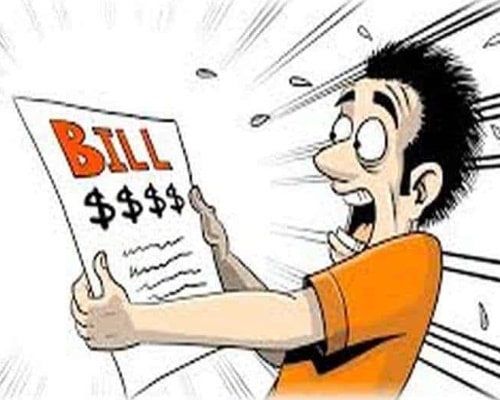(CNS): André Ebanks, in his role as acting finance minister, said the government was considering ways to help people face the cost of living crisis and high summer power bills. But a relief programme like the one that was rolled out in 2022 would now cost around $8.6 million. Opposition Leader Roy McTaggart has called on the current administration to use a windfall of duty fees, which exists as a result of inflation, to cut import duty on fuel for a year and subsidise light bills during the summer months.
During a recent parliamentary debate on a private member’s motion presented by McTaggart and supported by Barbara Conolly, Ebanks said that cutting fuel duty for a year would reduce revenue in the budget by $17 million.
Nevertheless, the acting premier said the motion was being accepted and its intent would be considered, albeit heavily qualified. He said the government wanted to help people but had to do so with financially sound measures.
Ebanks said the government had not been able to readily identify savings elsewhere that would cover the loss of $17 million “at this stage”, as he pointed out that helping those in most need would be a better approach rather than blanket reductions or support.
“The government is aware of the significant cost pressures affecting our people, and we are considering active measures at the moment to alleviate the financial burdens of our citizens, but we have to look at it in the round,” he said.
Ebanks said that despite budget constraints, the finance ministry and the chief officers across government would be looking closely at the state of the public finances during the first half of the year and projections for the second half and see what can be done to find more money. They would then consider this against other proposals and see which ones would have the “most direct impact that are affordable”.
“We all want to help our people,” Ebanks said, adding that the government would consider the proposals. However, as he accepted the motion, he said there was a real world and there were other expenses that needed to be balanced.
When he presented the arguments for the government to reduce fuel duty and roll out the subsidies for power bills, McTaggart pointed out that the drop in the headline inflation rate did not mean that the cost of living crisis had gone away as prices were still climbing. He said it was the government’s job to help its people when they were suffering, and with everyone expecting the summer to be very hot, cutting duty and reintroducing the electricity relief programme would offer some help.
McTaggart suggested that prices in Cayman were at least 20% higher today than they were when the current government took office in 2022. But prices had not increased evenly, as utilities and rent had increased by around a third, he said as he spoke about the recent public outcry after CUC rolled out its annual rate hike, which is part of its contract with the government.
McTaggart went through a list of food items that have dramatically increased, as well as the cost of fuel. At the same time, wages have remained flat, and many Caymanians are in low-paid jobs. He said Caymanians were facing massive increases in the cost of basic goods they buy every day when their earnings have barely gone up, if at all.
Following the debate, he thanked the acting premier for his calm response and urged him to do what the motion asked, maintaining that the government could afford it. He said that MPs were all aware of the problems, as they were confronted daily by a steady stream of constituents in need. But the number of people in need was rising with increasing bills and a worsening cost-of-living crisis. But he said he did not have ten or twenty thousand dollars to give away every month.
See the session of parliament on CIGTV below:

